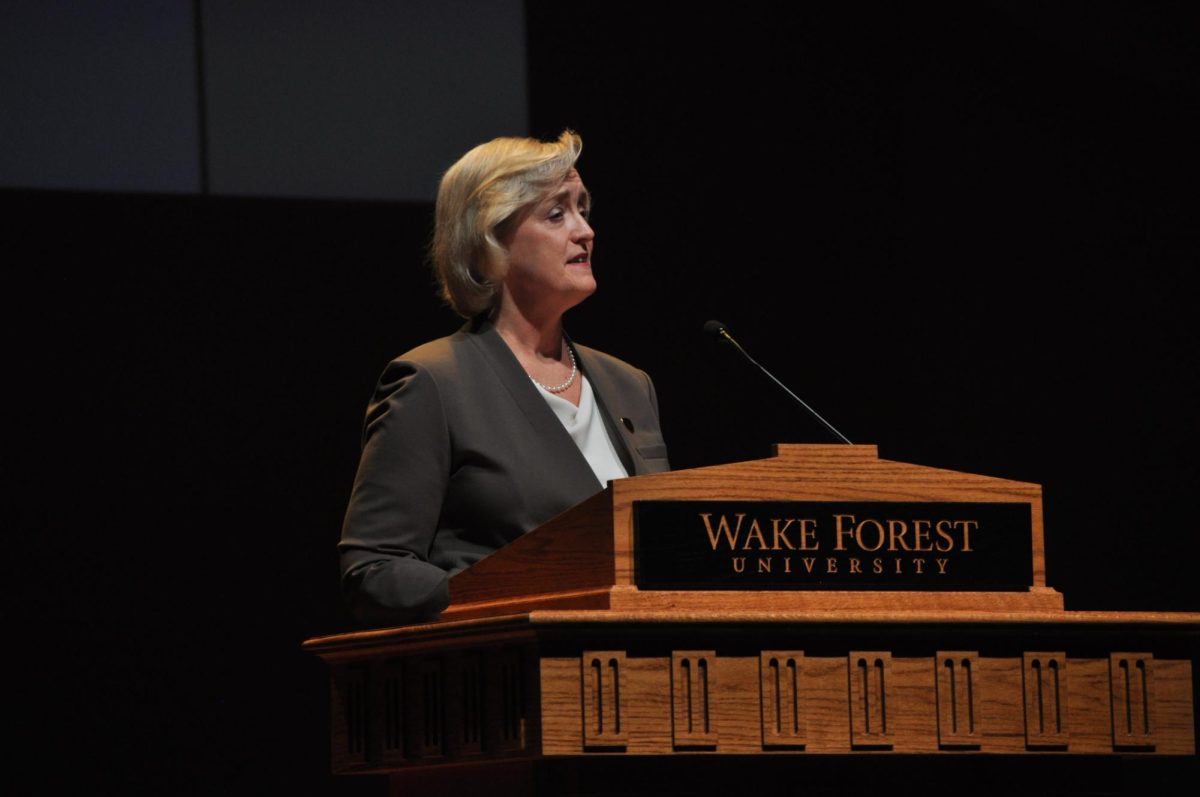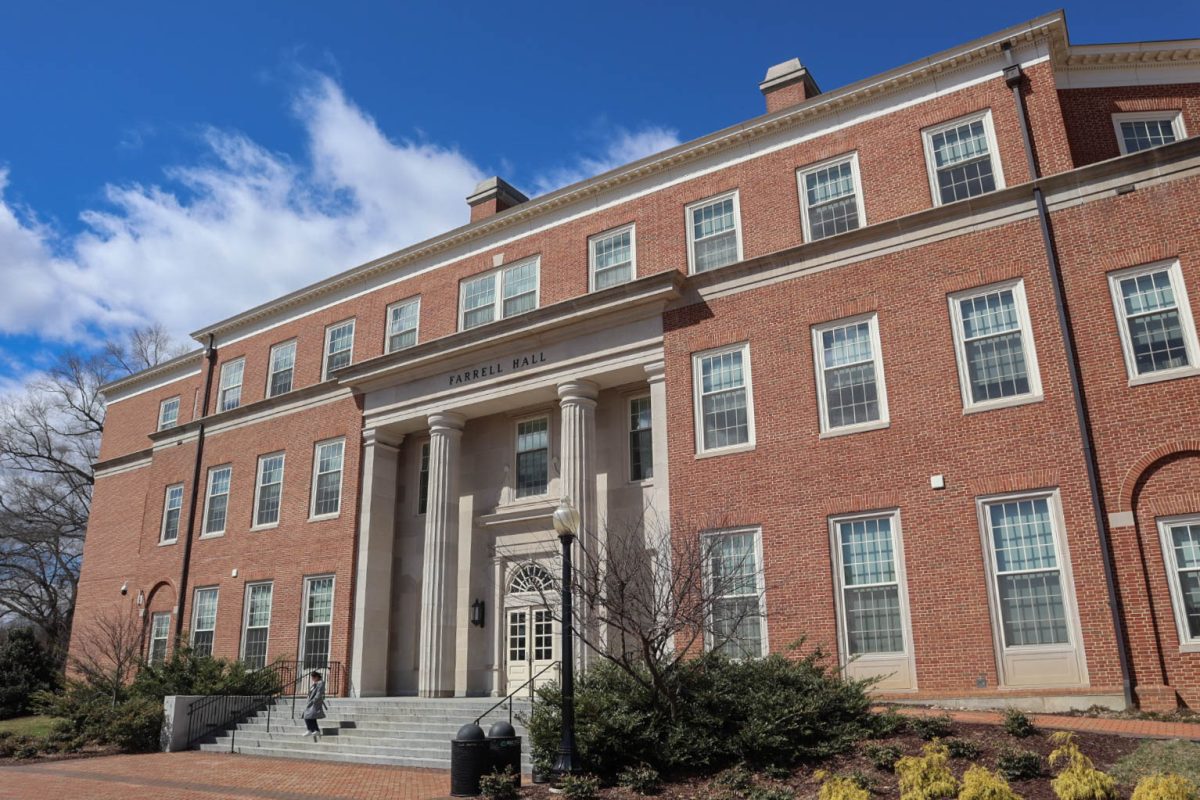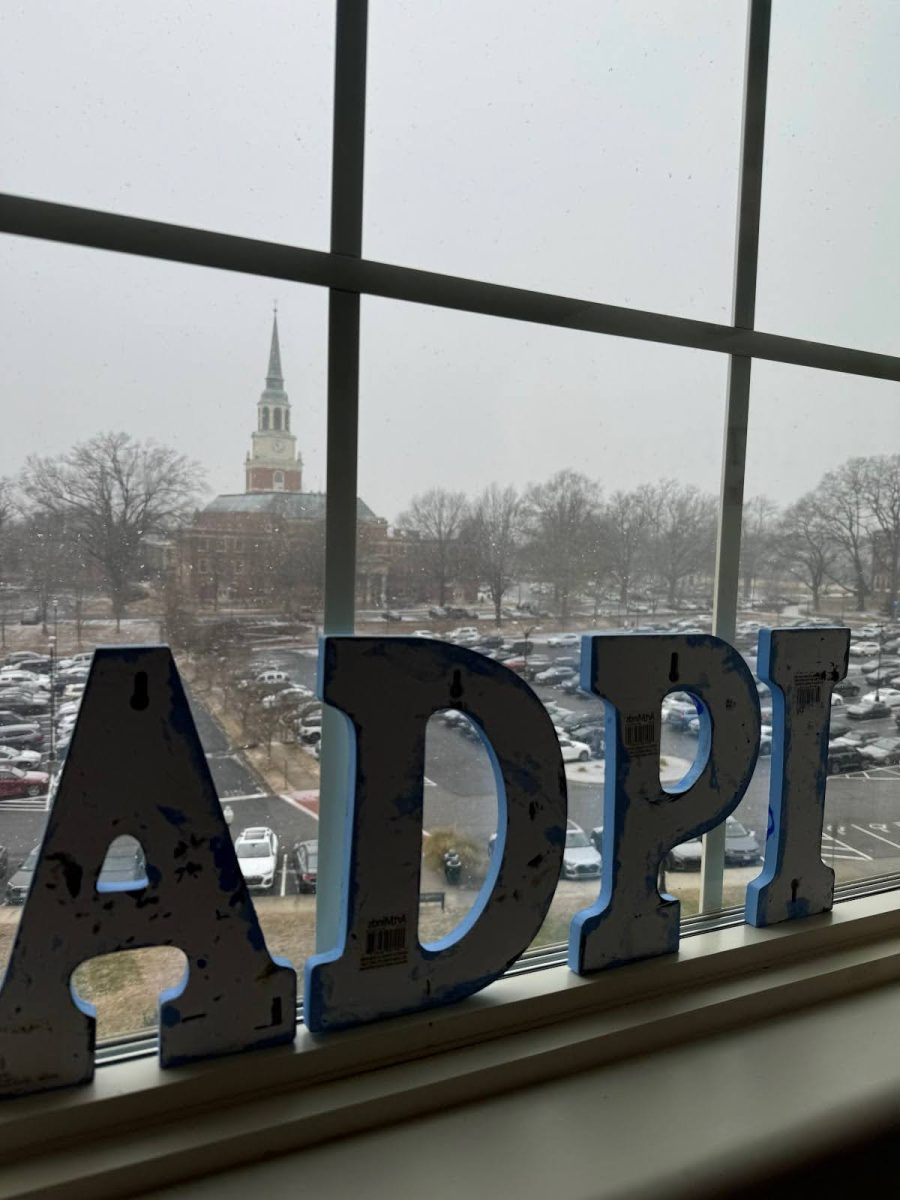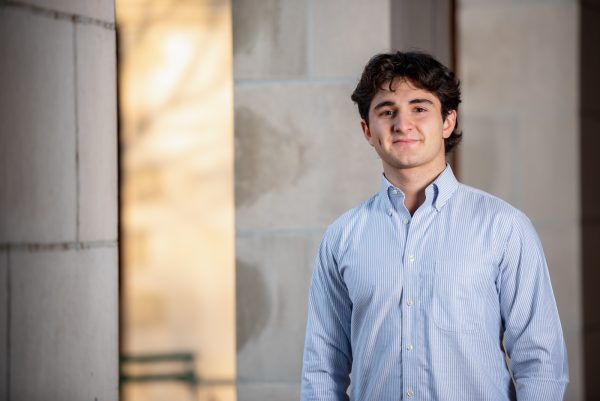Over the past few months, our Wake Forest community has faced a mountain of adversity and scrutiny. Students, faculty and the administration alike have been subject to significant pressure as the Israel-Hamas war rages on. The combination of strong emotions — grief and frustration — and palpable social tension is exhausting and overwhelming for our community. As we navigate that crisis, the community also continues to reckon with its fall from the U.S. News & World Report rankings’ top 30 national universities. In such difficult and stressful times, we seek inspiration from our leaders, specifically from our university president.
On Thursday, Nov. 16, Wake Forest President Dr. Susan Wente had an opportunity to meet this expectation when she stepped up to the podium for her annual presidential address. While the speech had its high points, I still couldn’t help from feeling disappointed as I left.
Don’t get me wrong, it was not a bad speech. After all, Wente had the opportunity to celebrate a few well earned accomplishments. But in the past year, the struggles our community continues to face — between the tension of the Israel-Hamas war and the U.S. News Rankings — were not substantially addressed.
For example,Wente did not mention or address Wake Forest’s drop in the U.S. News rankings. To my knowledge, the last time Wente or the administration commented on the matter was in September, in an additional statement to the Old Gold & Black where she said, “We’re going to continue to focus on our values and our strategy, and we’re not going to change our mission based on what the U.S. News is doing, or what it’s deciding to measure.”
While it is true that such rankings fail to define us as a community and that our school has not declined academically in the past year, many members of our community have felt a sting of disappointment. So maybe we should care a bit. As a multi-variable evaluation of our school, the U.S. News ranking rightly pointed out flaws within our university — such as a lack of economic and social diversity.
During her address, Wente touted present initiatives that work to address some of these deficiencies, including the For Humanity scholarship — an initiative that has secured $50 million dollars in new scholarship support to help lower the barriers for deserving students.
Despite the increased criticism our university has faced for economic diversity, Wente did not respond or demonstrate any increased level of dedication to such flaws. It was portrayed as if we were content with our current standing.
Again, don’t get me wrong. The For Humanity Scholarship is a great initiative and a step in the right direction. But it by no means is sufficient to address the problem at hand. The U.S. News rankings proved to us that what we have now is not enough. We need to do more to address the lack of diversity at Wake Forest. This sentiment, however, was not put forth during her speech.
Furthermore, Wente did not sufficiently speak to the common feeling of grief, uncertainty and pressure felt by students, faculty and staff alike regarding the Israel-Hamas war.
Multiple times in her speech, Wente addressed the violence — urging the community to come together during this difficult time for communal grieving. She praised how students have modeled the creation of spaces for peaceful reflection, learning and prayer in this adverse time.
While her words are inspiring and urge us to come together in this time of suffering, they also did not sufficiently address certain anguish within the community. For example, the war brings difficulty for our professors within the classroom. Even on such an intense and sensitive issue, professors continue to be left without guidance from the administration about how to foster positive, productive and respectful conversations around the current conflict. Wente’s speech was an opportunity to guide faculty on how to approach this issue and share active steps taken by the administration, yet that call is still unanswered.
Wente’s speech did touch on some great improvements within our community. Wente and Wake Forest are undoubtedly dedicated to a brighter future — both on and off campus. We should be excited for what is to come.
For example, Wente announced a few exciting initiatives and developments. For example, Wente highlighted the university’s decision to create a childcare center after decades of advocacy from faculty and staff. The construction of the childcare center is a great investment in the Wake Forest community and serves as a great example of the good our community can accomplish through advocacy. In addition to the new center, Wente spoke about numerous recent upgrades and investments on campus, including a $1 million investment this summer to renovate classrooms. Wente further elaborated on the university’s plan to invest in residential, retail and community services off-campus in Winston-Salem, including an initiative to redevelop the area surrounding Wake Forest’s athletic stadiums.
These developments and investments are exciting improvements to our university, and I commend Wente and the Wake Forest administration for their hard work and dedication.
But at the same time, only celebrating success ignores the bitter realities of the present. Without a doubt, the U.S. News rankings and the Israel-Hamas war put Wente in a tough situation. But the greatest leaders aren’t born in the easiest moments. Rather, they are born in moments of struggle — when they can offer light in a time of darkness.
The way I see it right now, our community is wounded by our struggles. We are tired. We are frustrated. We are anxious. This speech was Wente’s opportunity to nurture and care for these wounds. Yet, it was merely a Band-Aid. It covers the wound but does not heal it.
Wente’s speech mentioned the problems but did not address them. Now — more than ever — healing, care and active leadership are desperately needed. On that front, the speech did not answer the call.

















